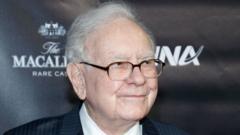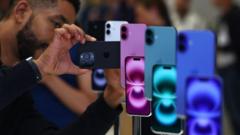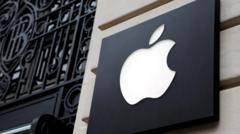Inside your smartphone lies tantalum, a rare metal connected to ongoing violence in the Democratic Republic of Congo. M23 rebels control vital mining areas, profiting off conflict while raising concerns about supply chain integrity and the ethical sourcing of minerals.
The Dark Side of Your Smartphone: Tantalum and Conflict in the DR Congo

The Dark Side of Your Smartphone: Tantalum and Conflict in the DR Congo
An exploration of the link between conflict minerals and the smartphone industry, highlighting the recent turmoil in the Democratic Republic of Congo.
The connection between your smartphone and the ongoing conflict in the Democratic Republic of Congo (DRC) is deeper than most consumers might realize. Within the depths of your device is tantalum—a critical component mined predominantly in an area rife with violence and turmoil. Recent headlines surrounding the M23 rebel group underscore a complex web of greed, conflict, and technological demand.
Tantalum, a rare blue-grey metal extracted primarily from coltan ore, is essential for powering smartphones and various electronic devices. While it is mined in other countries like Rwanda, Brazil, and Nigeria, at least 40%—potentially more—of the world's supply is sourced from the DRC. Recent advances made by the M23 rebel group in eastern DRC, particularly their control over the lucrative coltan mines, have brought this mining-dependent region into the international spotlight.
The M23 has garnered attention for its aggressive territorial expansion and military actions, notably the recent assault on Goma, a strategically important city near the Rwandan border. Once respected as a defender of specific ethnic groups, the M23 has morphed into a powerful insurgency, using mineral wealth to fund weaponry and sustain its military operations. Its control over the mineral-rich town of Rubaya serves as a prime example of how conflict and resource extraction intertwine.
In Rubaya, the M23 effectively established a 'state-like administration,' granting permits to local miners and traders, while regulating access to resources. By imposing taxes on coltan extraction—around $7 per kilogram and an annual fee for miners—the rebels reportedly generate approximately $800,000 a month to fuel their military ambitions. The complexity of the local mining network complicates the traceability of conflict minerals, raising eyebrows about how these resources end up in global supply chains.
The Idealistic Certification Schemes, such as the Innovative Tin Supply Chain Initiative (Itsci), were designed to prevent conflict minerals from making their way into consumer products. Yet, critics argue that the widespread informal mining sector undermines these efforts. Corruption within certification processes has also been raised as an issue, where state agents may sell permits, creating further chaos and complicating verification of mineral origins.
Even as Itsci attempted to maintain oversight in Rubaya, its operations halted amid the chaos of increased rebellion. Reports suggest that unregulated coltan continues to flow towards cross-border routes into Rwanda, where it is mixed with legally sourced minerals, further muddying the ethical sourcing narrative.
Recently, the Congolese government initiated criminal complaints against tech giant Apple for allegedly utilizing conflict minerals in their products. Though Apple disputes the claims, they announced, starting January 2024, a cessation of sourcing tantalum from the DRC and Rwanda due to the escalating conflict and certification issues. Other electronics manufacturers, however, remain ambiguous regarding the origins of their minerals.
As awareness grows about how smartphones are tied to international conflicts, consumers are left pondering their role in a global market that often overlooks the human cost of technological advancement. The intertwined fates of electronics and warfare remind us of the complexities beneath the surface of modern convenience.


















